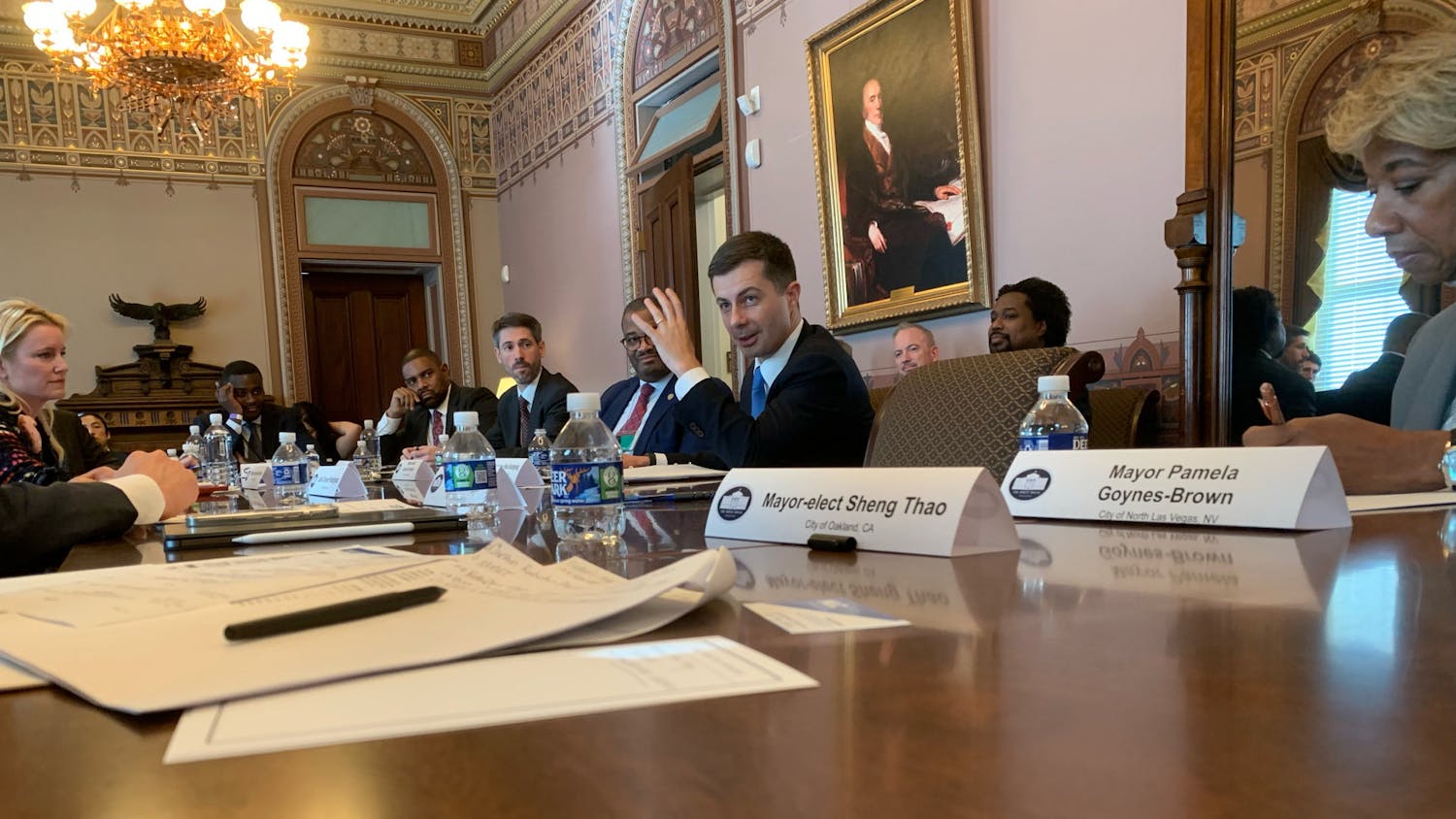The president is the ultimate victor-victim: The policies Obama proposes that should win the White House easy political victories are the situations that always lead to his defeat.
For example, advocating more Americans have health insurance, proposing big government solutions and condemning our enemies on the world stage — all positions that are popular with a large group of Americans — have led to the mess that still is Obamacare, an expanding bureaucracy that adds the recent Veterans Affairs situation to a growing list of scandals and the indifference of our foreign foes. These are victories in the planning stages but defeats in practice.
The Bowe Bergdahl fiasco adds to Obama’s victor-victim status. By all accounts, retrieving a captured prisoner of war from barbaric captors should have been a home run, and the administration treated it as such. The administration felt so good about what they did that they organized a presidential spike-the-football Rose Garden press conference with the soldier’s parents.
In order to spread the good news of this joyous occasion, the administration sent National Security Adviser Susan Rice to the Sunday show circuit.
Rice said on ABC’s “This Week” that Bergdahl “served the United States with honor and distinction” before he was “taken in battle” by the Taliban. To get him back, the administration engaged in a prisoner exchange.
The terms of the exchange? Five of the, as Sen. John McCain put it, “hardest of the hardcore,” Taliban fighters held in Guantanamo Bay for one American POW. Now this begins to complicate the feel-good narrative.
Surprising to the administration, bipartisan groups of politicians began to question the terms of the transfer. And just as that debate was heating up, Sgt. Bergdahl’s character came under increasing scrutiny. The soldiers he fought with before his capture now question his sense of the mission and claim that he sought out the Taliban by himself, challenging Rice’s talking points.
Add on top of that, the White House bypassed a 30-day notification of Congress rule in the event of a prisoner exchange, and there is no way a victory can be salvaged for the White House.
Here is what we have learned: First, no matter what one’s political persuasion is, the cliche that the U.S. never leaves a man behind still stands. It does not matter if the sergeant in question went AWOL, criticized the war he was fighting for or learned the language of his captors: Bergdahl is an American citizen. This country promises our servicemen and women that in the event of being taken captive by the enemy, the nation will get our own back.
Inevitably and rightfully, Bergdahl will be subject to a military tribunal where he will face the consequences of his actions.
Second, those who seek harm upon our country now have an incentive to capture Americans and have expected terms of exchange: five of us for one of yours. Time magazine quoted a Taliban operative in saying, “It’s better to kidnap one person like Bergdahl than kidnapping hundreds of useless people… Now everybody will work hard to capture such an important bird.”
And third, it is doubtful that a prisoner exchange was the only option to reclaim Bergdahl. Sending in a group of special forces to retrieve him would not be unsound considering we are still fighting a war in that region with a good amount of troops on the ground. Even the apologists for the administration have to admit that “President Drone-Strike” might have had intelligence on the sergeant’s whereabouts.
In sum, the president was right to get Bergdahl back to this country. However, the process in which he was returned is unfortunate. In getting our man back, we released five dangerous enemies of state into one of the most dangerous regions in the world, and the administration bucked the rule of law in the process.
[Michael Beato is a UF economics junior. His columns appear on Tuesdays. A version of this column ran on page 6 on 6/10/2014 under the headline "Obama and the Bergdahl dilemma"]




